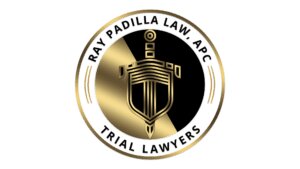Best State, Local, and Municipal Law Lawyers in California
Share your needs with us, get contacted by law firms.
Free. Takes 2 min.
Or refine your search by selecting a city:
List of the best lawyers in California, United States
About State, Local, and Municipal Law in California, United States
State, Local, and Municipal Law is the branch of law that deals with legal matters regulated at the levels beneath the federal government, including state, county, city, and municipal governments. In California, this area of law governs how states and local governments operate, including their powers, responsibilities, and limits. State laws are made through the California State Legislature, while local and municipal laws are enacted by county boards of supervisors, city councils, and other governing bodies. These regulations address a wide range of issues, from zoning and land use to public safety, taxes, environmental regulations, and local government operations.
Why You May Need a Lawyer
There are several situations in which individuals, businesses, or organizations might require legal assistance with state, local, or municipal law in California. Common scenarios include:
- Navigating land use and zoning rules for property development or business operations.
- Resolving disputes with local government agencies or officials regarding permits, licenses, or ordinances.
- Challenging decisions made by city councils, planning commissions, or other municipal bodies.
- Addressing code enforcement cases, such as alleged building or housing code violations.
- Seeking relief or permissions for variances, exceptions, or conditional use permits.
- Understanding your rights or obligations related to local taxes, assessments, or fees.
- Handling public records requests, open meetings act issues, or governmental transparency matters.
- Defending against enforcement actions brought by state or local authorities.
- Participating in local government processes, such as public hearings or ballot initiatives.
- Addressing employment law matters involving public employees or agencies.
Local Laws Overview
California is unique due to its size and diversity, resulting in a broad array of local laws across its counties and cities. Key aspects that are particularly relevant include:
- Zoning and Land Use: Local governments have significant authority to regulate the use of land through zoning ordinances, permitting processes, and land development standards. Regulations may address building heights, lot sizes, permitted uses, and environmental impacts.
- Municipal Ordinances: Cities and counties can create rules specific to their communities, such as noise restrictions, curfew laws, and animal control regulations. These ordinances often differ from one municipality to another.
- Code Enforcement: Local governments are responsible for enforcing housing, health, and safety codes. Violations may result in citations, fines, or mandatory repairs.
- Taxation and Assessments: Local agencies collect property taxes, business taxes, and special assessments to fund public services and infrastructure projects.
- Public Participation: The Brown Act governs open meetings for local agencies in California, ensuring transparency and community involvement in decision making.
- Licensing and Permits: Many activities, such as operating a business, selling alcohol, or hosting public events, require local permits or licenses.
- Public Records: The California Public Records Act grants access to information held by local governments, with certain limitations for privacy and security.
- Elections and Ballot Measures: California's local governments often shape policies directly through public voting on local initiatives, referendums, and recalls.
Frequently Asked Questions
What is the difference between state law and local or municipal law in California?
State law is enacted by the California Legislature and applies across the entire state. Local and municipal laws, such as city ordinances or county regulations, are created by local governing bodies and apply within their specific jurisdictions.
How do I find out what local laws apply in my city or county?
You can usually find local ordinances and codes on your city or county's official website or by contacting the city clerk's office or county records office.
Can local governments make laws that conflict with state law?
Local laws cannot contradict state law. If there is a conflict, state law generally prevails. However, local governments can enact laws on subjects not fully regulated by the state.
How are local zoning and land use decisions made?
Local planning commissions and city councils hold hearings and make decisions regarding zoning, building permits, and land development based on local zoning codes and general plans.
What should I do if I receive a code violation notice?
Carefully review the notice to understand the alleged violation, applicable deadlines, and options for correction or appeal. You may also consider consulting a lawyer experienced in code compliance.
How do I appeal a decision made by a local government agency?
The process varies by agency but generally involves filing a written appeal within a specific timeframe. Check with the issuing agency for their appeal procedures and deadlines.
Are local government meetings open to the public?
Yes, in most cases. The Brown Act requires most meetings of local governmental bodies in California to be open and accessible to the public, except for certain closed sessions allowed by law.
How can I request public records from a city or county?
Submit a written request citing the California Public Records Act to the agency's records department or designated public information officer. Some agencies provide online forms or email addresses for such requests.
Do I need a permit to start a small business in my city?
Most California cities and counties require business licenses and may require other permits depending on the business type and location. Check with your local business licensing office for details.
What legal resources are available for resolving disputes with local government?
You can contact legal aid organizations, private attorneys, or mediation services. Some cities and counties also provide ombudsman or complaint resolution services for residents.
Additional Resources
If you need more information or help regarding state, local, and municipal law in California, consider these resources:
- California State Bar - Lawyer referral services and legal information
- Local City or County Clerk's Office - Access to municipal codes and public records
- California Secretary of State - Guidance on state agencies and local government operations
- Public Law Center - Nonprofit providing legal assistance on public interest matters
- California Department of Consumer Affairs - Resources about licenses, permits, and consumer rights
- Your local Public Library - Many libraries offer legal information centers
Next Steps
If you believe you need legal help with a state, local, or municipal law issue in California, consider these steps:
- Identify the specific nature of your legal concern and whether it falls under state, county, city, or municipal jurisdiction.
- Gather all related documents, including permits, violation notices, correspondence, or official records.
- Review local ordinances and regulations relevant to your issue, which are often available online from the city or county's website.
- Consult with a lawyer who specializes in state, local, and municipal law. The California State Bar can help you find a qualified attorney in your area.
- If seeking general guidance, reach out to legal aid organizations or local government help desks for assistance.
- Pay attention to deadlines, such as appeal periods or response requirements, to protect your legal rights.
- If your situation involves attending hearings or submitting applications, prepare your materials thoroughly and consider retaining legal representation for the best outcome.
Obtaining professional legal advice ensures you understand your options, comply with the law, and can effectively address disputes or regulatory matters with state or local authorities in California.
Lawzana helps you find the best lawyers and law firms in California through a curated and pre-screened list of qualified legal professionals. Our platform offers rankings and detailed profiles of attorneys and law firms, allowing you to compare based on practice areas, including State, Local, and Municipal Law, experience, and client feedback.
Each profile includes a description of the firm's areas of practice, client reviews, team members and partners, year of establishment, spoken languages, office locations, contact information, social media presence, and any published articles or resources. Most firms on our platform speak English and are experienced in both local and international legal matters.
Get a quote from top-rated law firms in California, United States — quickly, securely, and without unnecessary hassle.
Disclaimer:
The information provided on this page is for general informational purposes only and does not constitute legal advice. While we strive to ensure the accuracy and relevance of the content, legal information may change over time, and interpretations of the law can vary. You should always consult with a qualified legal professional for advice specific to your situation.
We disclaim all liability for actions taken or not taken based on the content of this page. If you believe any information is incorrect or outdated, please contact us, and we will review and update it where appropriate.
Browse state, local, and municipal law law firms by city in California
Refine your search by selecting a city.
















